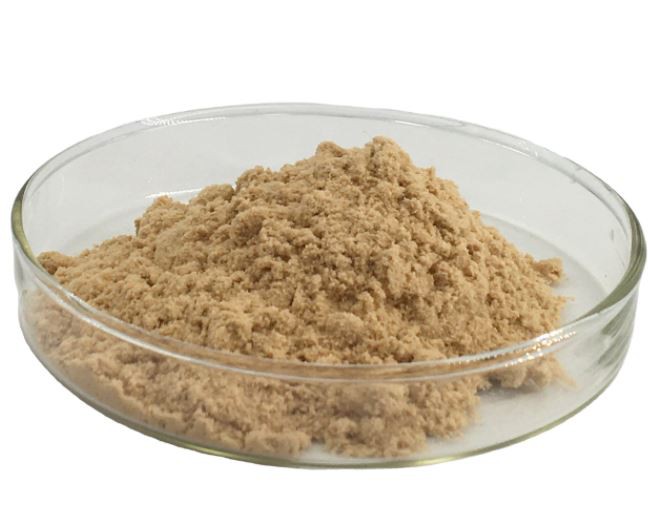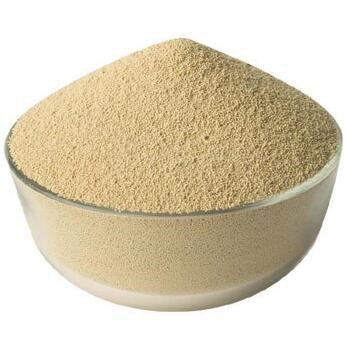Please send me an email
Follow Us:
CAS No.:9001-92-7
EINECS:232-990-7
Nutritional Value:Nutritional
Certification:ISO
Grade:Animal Feed Grade
Application:Promote Nutrition
Usage:feed additive
Bulk stock in USA Warehouse
A protease (also called a peptidase or proteinase) is an enzyme that catalyzes (increases reaction rate or “speeds up”) proteolysis, breaking down proteins into smaller polypeptides or single amino acids, and spurring the formation of new protein products. They do this by cleaving the peptide bonds within proteins by hydrolysis, a reaction where water breaks bonds. Proteases are involved in many biological functions, including digestion of ingested proteins, protein catabolism (breakdown of old proteins), and cell signaling.
In the absence of functional accelerants, proteolysis would be very slow, taking hundreds of years.Proteases can be found in all forms of life and viruses. They have independently evolved multiple times, and different classes of protease can perform the same reaction by completely different catalytic mechanisms.

| Type | Feed Nutrition |
| Brand Name | GREEN AGRI |
| Model Number | NA |
| Product name | Feed & Animal Nutrition |
| Appearance | Brown Powder |
| Optimum pH | 4.0 – 5.5 |
| Temperature range | 30 C – 85 C |
| Optimum Temperature | 50 C – 60 C |

The digestion of feed protein is completed by the endogenous proteolytic enzyme system in the digestive tract, including pepsin, trypsin, chymotrypsin, elastase, aminopeptidase and carboxypeptidase.
Animals cannot fully digest and absorb dietary protein and amino acids. Undigested fractions can serve as fermentation substrates for hindgut microorganisms in monogastric animals, but can cause digestive disturbances in monogastric animals. Differences between ileal and fecal digestibility in broilers suggest that the metabolism of amino acids by hindgut microbiota may be of considerable importance.
Adding exogenous feed protease to feed can further improve the protein digestibility of raw materials by improving the solubility and hydrolysis of dietary protein, and reduce the substrate required for poor hindgut fermentation.
Caine et al. investigated the effect of pretreatment of soybean meal with subtilisin on soluble crude protein and soybean trypsin inhibitor in in vitro experiments and showed a significant increase in soluble crude protein and a decrease in soybean trypsin inhibitor in some cases.
Exogenous feed protease can significantly degrade the protein storage vacuoles of whole soybean in vitro. Protein degradation is visualized as holes appear in the protein storage vacuoles. It is currently unclear whether methods for measuring protein and amino acid digestibility are also optimal for measuring the effectiveness of exogenous proteases. The use of proteases in feed is somewhat inconclusive. The positive effect of proteases on protein and amino acid digestibility can be confirmed in a large number of experiments on different animals, but there are also a limited number of experiments showing no beneficial effect of proteases on these parameters. These results may depend on specific experimental conditions, such as the source of protease used in the experiment, the duration of the experiment, the level of protease supplementation, the age of the animal, the composition of the basal diet, or the experimental parameters and methods. The interaction of endogenous proteases with exogenous proteases added to the feed and their regulation of metabolism may also be a factor.
In general, the animal body finely regulates the activity of endogenous proteases, because these enzymes become active in the wrong places that may digest their own tissues or may activate inflammatory pathways. The pancreas regulates its enzyme secretion according to the composition of the diet. This phenomenon was first observed by Pavlov and has since been extensively confirmed in several studies employing more sophisticated techniques. After an animal is acclimated to a diet rich in a particular nutrient, the level of that nutrient increases in the animal’s digestive tract, followed by a rapid increase in the level of the corresponding enzyme in the pancreas. These adaptations are purely intuitive, suggesting that the digestive process is fine-tuned to avoid overproduction of digestive juices. Exogenous proteases can bridge the gap between feed ingredients and animal digestive enzyme complements. The addition of exogenous proteases to the feed can save maintenance energy by reducing the secretion of endogenous enzymes without necessarily improving performance by increasing digestibility.
Further studies evaluating the optimal conditions of proteases in animal nutrition, to facilitate efficacy studies in different animal species, between different proteases and to translate the results into actual feed formulations, are recommended to establish a foundational setup. Recent publications on exogenous proteases have focused on gastrointestinal health, gut morphology, or the effect of addition under challenging conditions in animals after addition of exogenous proteases, and results have shown positive effects of exogenous proteases .

The Protease Supplier
Green agri enjoys long term relationships with our clients because we focus on customer service and providing great products. If you are interested in our products, we are flexible with the customization of orders to suit your specific need and our quick lead time on orders guarantees you’ll have great tasting our products on-time.
We also focus on value-added services. We are available for service questions and information to support your business.
Why Choose Protease?
Green agri specialize in protease powder for several years, we supply products with competitive price, and our product is of the highest quality and undergoes strict, independent testing to ensure that it is safe for consumption around the world.
Where to buy Protease?
Just send email to info@greenagribio.com, or submit your requirement in bottom form, we are of service at any time!
Hot Tags: protease